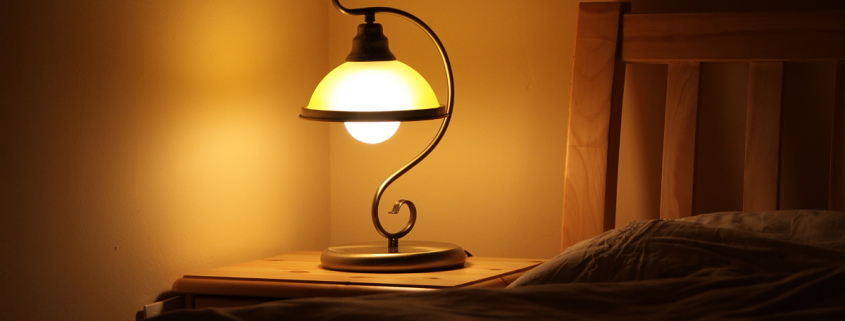Sleeping Tips For Seniors: How To Get a Good Night Sleep In The Old Age
Do you have difficulty falling asleep and happen to lie in bed, anxiously waiting for sleep? Not sure how to sleep through the night without waking up? Or does a senior close to you, sleep shallowly, and wake up during the night and can’t fall asleep afterwards? Sleep quality and modes change with age.
A sound night’s sleep is the foundation of a healthy body, and as we know, health is especially important for our seniors. Therefore, today we discuss how to get a good night’s sleep and introduce you to the top tips for sleeping for seniors.
Senior sleeping
Insomnia in the elderly is a common issue. Approximately one in two seniors suffers from a sleep disorder. The need for sleep in adults changes slightly with age. The greatest changes occur between the ages of sixty and seventy.
Although the total sleep duration of older people does not usually decrease, their sleep becomes shallower. This is due, among other things, to changes in sleep structure occurring as the body ages. The phases of deep sleep in seniors are often shortened and they can be awakened much more easily.
Furthermore, older people are more sensitive to external factors that interfere with sleep. A bedroom that is too warm, a snoring partner or a mattress that is too soft – things that can easily be endured in middle age can suddenly become factors that interfere with sleep in old age. Psychological stresses such as loneliness, conflicts, and excessive or insufficient daytime activity also have a negative impact on sleep. Older people rarely have difficulty falling asleep the problem is mainly waking up during the night and having difficulty falling asleep after waking up. Seniors also sleep more during the day, usually 30-60 minutes, and correspondingly less at night.
Causes of sleep disorders in seniors
The most common causes of sleep disorders in older people are:
- Depression,
- Somatic diseases,
- Dementia diseases,
- Inadequately treated pain,
- Bed immobilisation,
- Adverse effects of medication,
- Unfavourable environment (temperature, noise),
- Nycturia – urination at night,
- Lack of activity during the day.
How to get a good night’s sleep – top tips for sleeping through the night for seniors
Are you wondering how to sleep through the night without waking up? Instead of reaching for sleeping pills, take care of your sleep hygiene. Following these simple methods allows you to get a better night’s sleep over time and feel better throughout the day. Find out our remedies for sleep deprivation for seniors at night.
The proper sleep hygiene
Ensure that the room is well-ventilated and that the temperature makes it easier to fall asleep. Although it is better to fall asleep in a cooler room, it needs to be slightly warmer for older people. The elderly person should not drink too much water or eat foods that are hard to digest before bedtime, as they can make it all the more difficult to fall asleep.
The issue of adequate light exposure
Light is an indicator of time. Exposure to light at the wrong time over time is going to disrupt the circadian rhythm, even if your lifestyle is very regular. To strengthen the circadian rhythm, stay in brightly lit rooms during the day and use daylight as much as possible by going outside. In the evening, on the other hand, exposure to light should be avoided, especially light that falls on the eyes and is blue. Such light is emitted by TV screens and computer monitors.
Therefore, the elderly person should avoid working at a computer and watching TV in the last three hours before bedtime. If this is difficult to accept, the absolute minimum is the last hour before bedtime. Blue light is the strongest inhibitor of melatonin release and for the brain is a signal of dawn, the beginning of the day. Sunset has a yellow-red, warm colour; such soft light should be used in the evening, while the light for reading should always come from behind the head.
The right mattress and pillow for seniors
A mattress is extremely important for the quality of sleep of an elderly person. It needs to be reasonably soft, as the thinner skin of older people and often a smaller layer of adipose tissue make any pressure on the body more noticeable. In addition, elderly people have thermoregulation problems: they can be too cold to fall asleep and often overheat at night. For them, mattresses that support thermoregulation are a good solution. Allergies are also common in old age and the skin is more delicate and prone to irritation. An anti-allergy mattress made of natural ingredients is therefore a good choice.
A suitable pillow is also important – rehabilitative and orthopaedic. It allows you to reduce muscle tension by holding the head in the right position and will not block the blood flow. If calf cramps are a problem for seniors, consider a foot cushion to keep the feet slightly higher, or a mattress with a movable frame and a slight elevation of the lower part of the mattress. For stress-induced insomnia, special heavy blankets and duvets are also useful to reduce feelings of anxiety.
How to get a good night’s sleep – conclusion
The answer to how to get a good night’s sleep is quite simple. It all depends on the appropriate approach. For starters, it’s a good idea to ensure the right environment, i.e. bedroom temperature and ventilation of the room. Then you need to get the right pillow and duvet, and finally, make some lifestyle changes — give up alcohol and watch TV before bed. And if that fails to help, you can support yourself with melanin-based supplements, but only upon consultation with your doctor.















